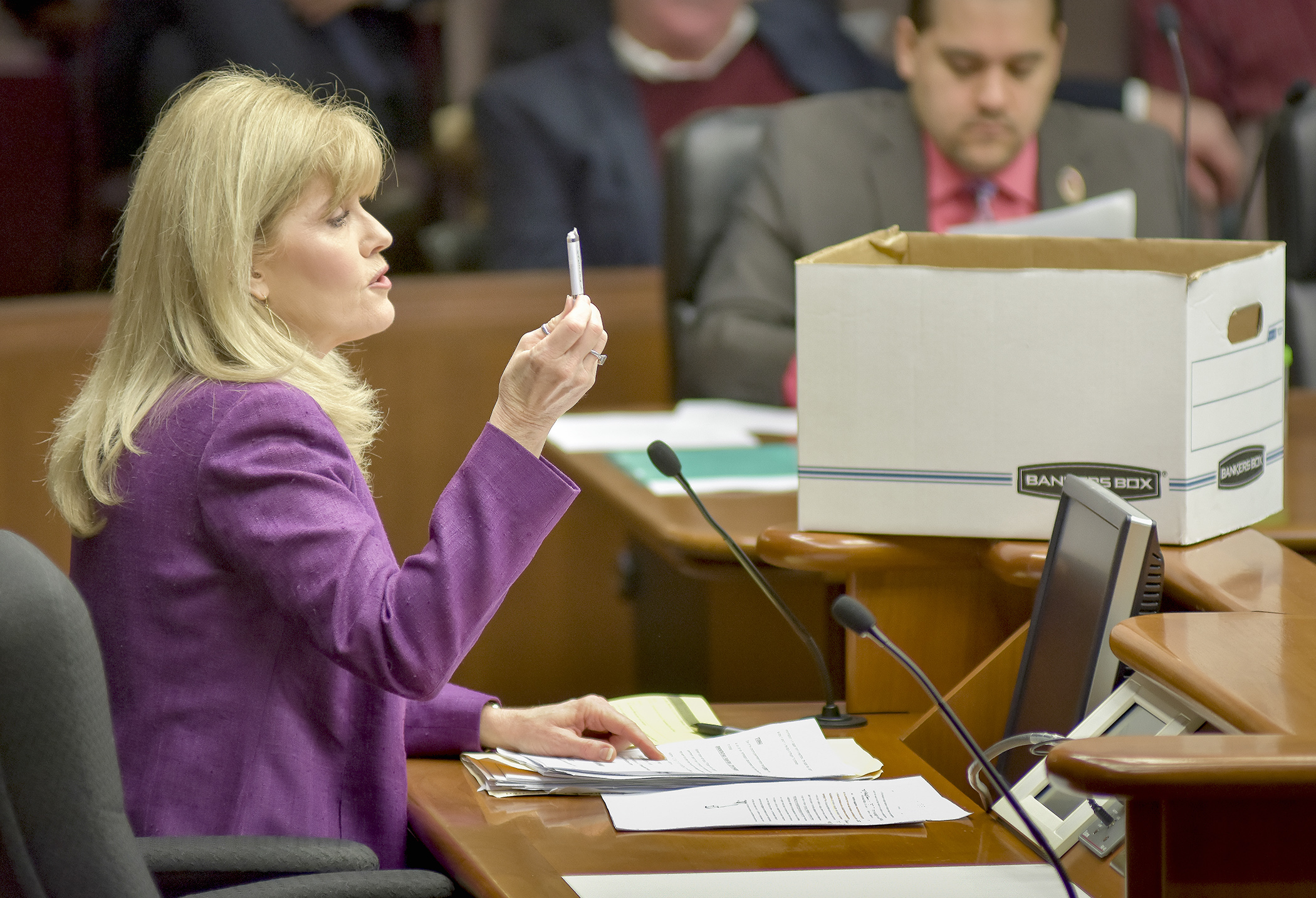Email retention policy needed to bring uniformity

Government employees may not want to be too quick to clean up their email.
That’s the message of HF1185 that would require government entities in Minnesota to keep written and electronic correspondence for three years.
The House Civil Law and Data Practices Policy Committee approved the bill, sponsored by Rep. Peggy Scott (R-Andover), as amended, Tuesday. It goes next to the House Government Operations and Elections Policy Committee. There is no Senate companion.
“Currently, there is a hodgepodge of government retention policy in relation to electronic correspondence,” said Scott, the committee chair. “There needs to be uniformity so no [government] entity has to guess or simply choose what works best for them.”
John Mannillo, a member of the Saint Paul STRONG steering committee, spoke in support of the bill. “By allowing any city employee to unilaterally delete any email communication with only minimal training, we’re allowing truth to be buried and history to be erased.”
But Lenora Madigan, deputy commissioner at the Department of Administration, said HF1185 “would dramatically expand the amounts and type of data that an agency would retain … and could potentially diminish rather than enhance genuine transparency.”
Besides the three-year retention requirement, the bill would remove parts of current law that require only records that are “official,” created “in connection with the transaction of public business,” or part of an “official transaction” to be retained.
The bill would define what constitutes “correspondence,” something missing from current statute.
Excluded from the definition, under the amendment, would be “purely personal communications, announcements of social events, and unsolicited advertising or promotional material that bears no substantive relationship to the events, decisions, business, or functions of the agency, public authority, or political entity.”
Related Articles
Search Session Daily
Advanced Search OptionsPriority Dailies
Ways and Means Committee OKs proposed $512 million supplemental budget on party-line vote
By Mike Cook Meeting more needs or fiscal irresponsibility is one way to sum up the differences among the two parties on a supplemental spending package a year after a $72 billion state budg...
Meeting more needs or fiscal irresponsibility is one way to sum up the differences among the two parties on a supplemental spending package a year after a $72 billion state budg...
Minnesota’s projected budget surplus balloons to $3.7 billion, but fiscal pressure still looms
By Rob Hubbard Just as Minnesota has experienced a warmer winter than usual, so has the state’s budget outlook warmed over the past few months.
On Thursday, Minnesota Management and Budget...
Just as Minnesota has experienced a warmer winter than usual, so has the state’s budget outlook warmed over the past few months.
On Thursday, Minnesota Management and Budget...